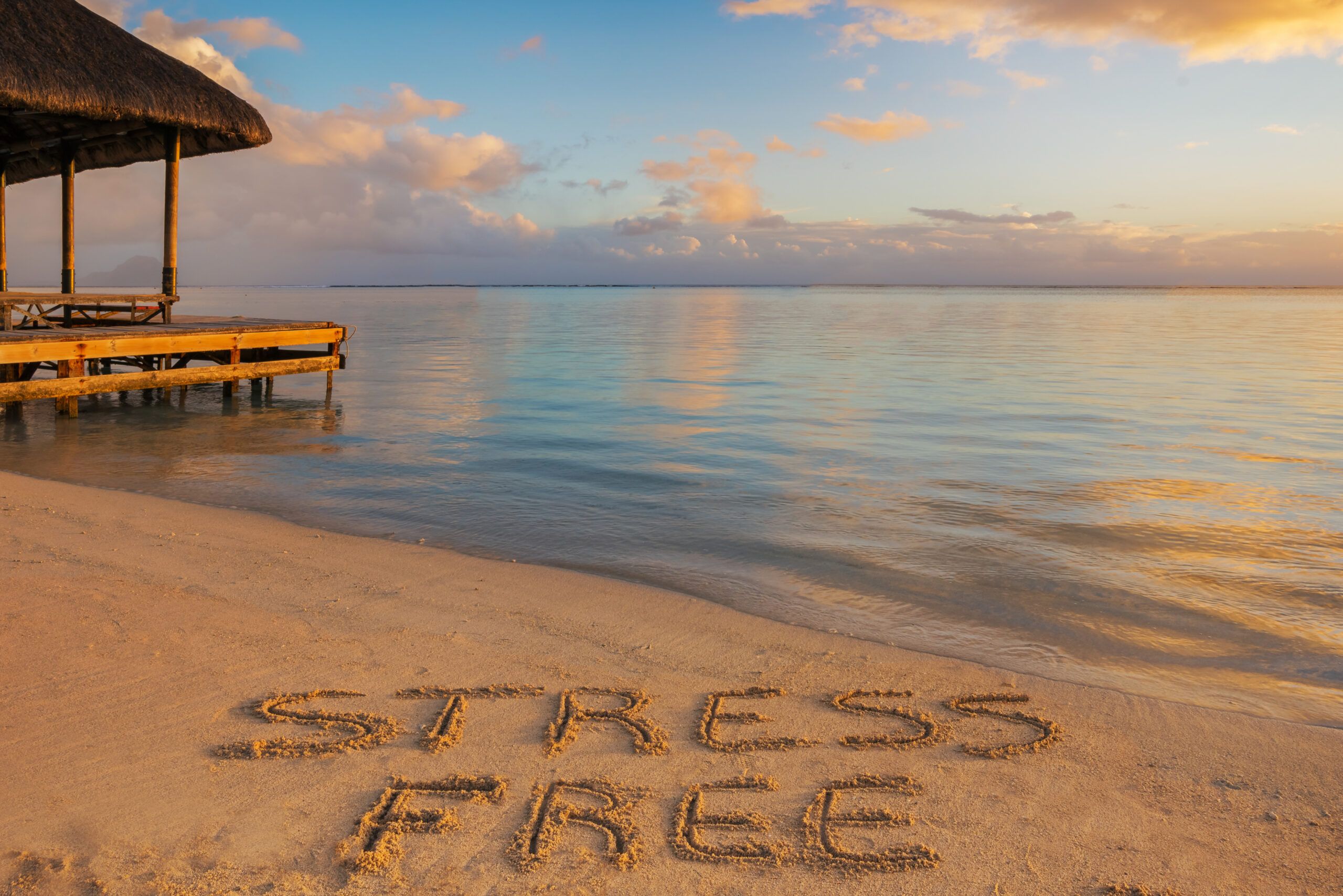Travelling can be one of life’s greatest joys. Whether you’re jet-setting to an exotic destination, embarking on a weekend road trip, or taking a well-deserved vacation after months of hard work, the excitement of exploring new places and immersing yourself in new cultures is undeniably thrilling. However, it can also come with its share of stress. Planning itineraries, packing, dealing with airport security, and managing unforeseen circumstances can turn what should be a relaxing experience into a stressful ordeal.
Fortunately, with proper planning and a few strategic tips, you can enjoy a stress-free vacation and make the most of your trip. In this guide, we’ll cover everything from pre-trip planning to in-the-moment advice to help you create a smooth, enjoyable travel experience. Let’s dive into essential travel tips to ensure your next vacation is as stress-free as possible.
1. Plan and Be Organized

One of the easiest ways to minimize stress when travelling is to plan. Doing so will allow you to avoid last-minute scrambling and give you peace of mind knowing everything is under control.
a) Research Your Destination
Before setting off, spend some time researching your destination. Learn about local customs, transportation options, attractions, and currency exchange rates. Familiarizing yourself with your destination helps prevent culture shock and enables you to better navigate your surroundings once you arrive.
b) Make a Travel Checklist
Having a checklist ensures that you won’t forget any essentials. Break your checklist into categories, such as:
- Documents: Passport, travel visas, insurance, itinerary, copies of hotel reservations, etc.
- Clothing: Choose weather-appropriate attire for the destination and consider the activities you plan to do.
- Essentials: Toiletries, medications, chargers, travel adapters, and a first-aid kit.
c) Book Flights and Accommodation in Advance
Booking flights, accommodation, and other travel arrangements in advance often saves you money and ensures you have the best selection. It also reduces stress since you won’t have to worry about availability or last-minute price hikes.
2. Choose the Right Time to Travel
Timing can make a significant difference in how smoothly your trip goes. Whether it’s avoiding large crowds, high prices, or simply ensuring good weather, choosing the right time to travel plays an important role in creating a stress-free vacation.
Declutter Your Home: Easy Tricks to Tidy Up and Stay Organized
a) Travel During Off-Peak Seasons
If your schedule allows, consider travelling during off-peak or shoulder seasons. Popular tourist destinations tend to be less crowded, accommodation is more affordable, and lines at attractions are shorter. Not only does this save you money, but it also makes for a more relaxing trip.
b) Check Local Holidays and Events
Before booking your trip, check whether there are any local holidays, festivals, or events happening during your planned dates. While festivals can add a vibrant experience to your trip, they may also cause higher hotel prices and busier attractions. Knowing about them in advance allows you to adjust your itinerary accordingly.
c) Account for Jet Lag
Jet lag can sap your energy and leave you feeling disoriented. If travelling across time zones, try to gradually adjust your sleep schedule a few days before your trip. When you arrive, expose yourself to daylight as much as possible to help your body adjust to the new time zone.
3. Pack Smart
Packing is often one of the most stressful aspects of preparing for a trip, but it doesn’t have to be. Packing light and smart ensures you’re prepared for your vacation without the added burden of lugging around a heavy suitcase.
a) Pack Light
One of the golden rules of stress-free travel is to pack light. The less you bring, the less you’ll have to carry and keep track of. Invest in versatile, wrinkle-resistant clothing that can be worn for different occasions. Roll your clothes to save space, and use packing cubes to organize items within your suitcase.
b) Use a Carry-On Whenever Possible
If you can fit everything into a carry-on, do it. Travelling with only a carry-on means you’ll avoid long waits at the baggage claim and reduce the risk of lost luggage. Most airlines have size and weight limits for carry-ons, so check those before packing.
c) Pack an Essentials Bag
Make sure you have a small essentials bag that contains all the items you’ll need easy access to during your trip. This could include travel documents, snacks, medications, chargers, hand sanitiser, a travel pillow, and a reusable water bottle.

4. Stay Flexible with Your Itinerary
Having a well-thought-out itinerary can provide structure to your vacation, but being too rigid can lead to stress if things don’t go as planned. Allow for flexibility and leave room for spontaneity.
a) Don’t Over-Schedule
One common mistake is trying to pack too many activities into your trip. While it’s tempting to see and do everything, overloading your schedule can make the trip feel rushed and exhausting. Prioritize the top activities you want to experience and leave downtime to relax and explore unplanned.
b) Have Backup Plans
Weather changes, closures, or unexpected situations can throw off your plans. Be prepared by having backup activities in mind. If you’re planning outdoor excursions, research indoor attractions, such as museums or cultural landmarks, in case of rain.
c) Use Travel Apps
Many travel apps can help you stay organized and stress-free. Apps like TripIt or Google Trips allow you to store all your travel details, such as flight information, hotel reservations, and itineraries, in one place. Maps apps also help you navigate unfamiliar places, and translation apps can be a lifesaver in non-English-speaking countries.
5. Be Prepared for Airport and Flight
Airports and flights are notorious for causing stress, but with a little preparation, they can be more manageable and even enjoyable.
a) Arrive Early
Give yourself plenty of time at the airport by arriving early. Airlines recommend arriving at least two hours before domestic flights and three hours before international flights. Having extra time ensures you’re not rushed if there are long lines at security or check-in.
b) Check-in Online
Many airlines allow you to check in online up to 24 hours before your flight. Checking in early allows you to choose your seat and sometimes even skip long lines at the airport.
c) Bring Entertainment and Snacks
Long flights can feel tedious if you’re unprepared. Bring books, movies, or a tablet to keep yourself entertained. Most airlines provide snacks, but it’s a good idea to bring your snacks and water, especially for long or budget flights that may not provide meals.
6. Stay Healthy During Your Trip
Staying healthy during your vacation is essential for ensuring you have a good time. The last thing you want is to spend your trip feeling unwell, so take precautions to maintain your health.
a) Stay Hydrated
It’s easy to forget to drink enough water while travelling, but staying hydrated is crucial, especially during flights and in hot climates. Bring a reusable water bottle and fill it up regularly to avoid dehydration.
b) Get Enough Rest
Vacations can be filled with activities, but don’t forget to get enough sleep. Jet lag and long days can take a toll on your body, so ensure you’re giving yourself ample rest to recharge.
c) Protect Yourself from the Sun
If you’re travelling to a sunny destination, protect yourself from the sun’s harmful rays. Wear sunscreen, sunglasses, and a wide-brimmed hat, and take breaks in the shade. Sunburns and heat exhaustion can quickly ruin a trip.
d) Practice Good Hygiene
In busy tourist areas, it’s easy to pick up germs. Carry hand sanitiser, wash your hands regularly, and avoid touching your face to minimize the risk of getting sick during your trip.
7. Manage Money Wisely
Money management can be a source of stress during a trip, but it doesn’t have to be. With some financial planning, you can avoid money-related anxieties and focus on enjoying your vacation.
a) Notify Your Bank
Before travelling, notify your bank of your travel plans to prevent your card from being flagged for suspicious activity. This is particularly important if you’re travelling internationally.
b) Use Credit Cards with No Foreign Transaction Fees
If travelling abroad, use a credit card with no foreign transaction fees to avoid extra charges on your purchases. It’s also wise to carry some local currency for small purchases and tips.
c) Set a Budget
Establish a daily budget to avoid overspending. Knowing how much you can comfortably spend on food, activities, and souvenirs will help you make smarter financial choices during your trip.
8. Keep Safety in Mind
No matter how exciting your destination is, safety should always be a top priority.
Healthy Eating on a Budget: Tips and Tricks for Affordable Meal Planning
a) Secure Your Belongings
Pickpocketing is a common issue in tourist-heavy areas. Invest in a secure money belt or anti-theft backpack to keep your valuables safe. Use hotel safes to store passports and extra cash when not in use.
b) Have Emergency Contacts Ready
It’s important to know where to go or whom to call in case of an emergency. Keep a list of local emergency numbers, the address of your country’s embassy or consulate, and any other necessary contacts handy.
c) Purchase Travel Insurance
Travel insurance may seem like an extra expense, but it can provide peace of mind and protect you from unexpected situations, such as trip cancellations, lost luggage, or medical emergencies.
9. Disconnect and Unplug
In today’s hyper-connected world, it can be difficult to unplug. However, disconnecting from your devices and the stresses of daily life can significantly improve your vacation experience.
a) Limit Screen Time
Put your phone away during meals, sightseeing, and other activities. Instead, be present in the moment and fully immerse yourself in the experience.

b) Use Airplane Mode
If you need to check your phone but want to avoid constant notifications, put it in aeroplane mode. This will allow you to access your camera, maps, and other offline features without the distraction of incoming emails or messages.
10. Embrace the Unexpected
Even with the best-laid plans, things may not always go as expected. Flights get delayed, attractions close, or the weather takes a turn for the worse. Instead of stressing over what you can’t control, try to embrace the unexpected and make the most of the situation.
a) Stay Positive
A positive attitude can make all the difference. If something doesn’t go according to plan, look for the silver lining or seek alternative experiences. You may end up creating some of your favourite travel memories from unplanned moments.
b) Go with the Flow
Allow yourself to be flexible and go with the flow. Sometimes, the best travel experiences come from spontaneous decisions or recommendations from locals.
By following these travel tips, you’ll be well on your way to a stress-free vacation that allows you to fully enjoy your destination. From packing smart and planning to being flexible and embracing the unexpected, a little preparation can go a long way in ensuring that your trip is filled with relaxation, adventure, and unforgettable memories. Happy travels!
Productivity Hacks for Busy People: How to Get More Done in Less Time



